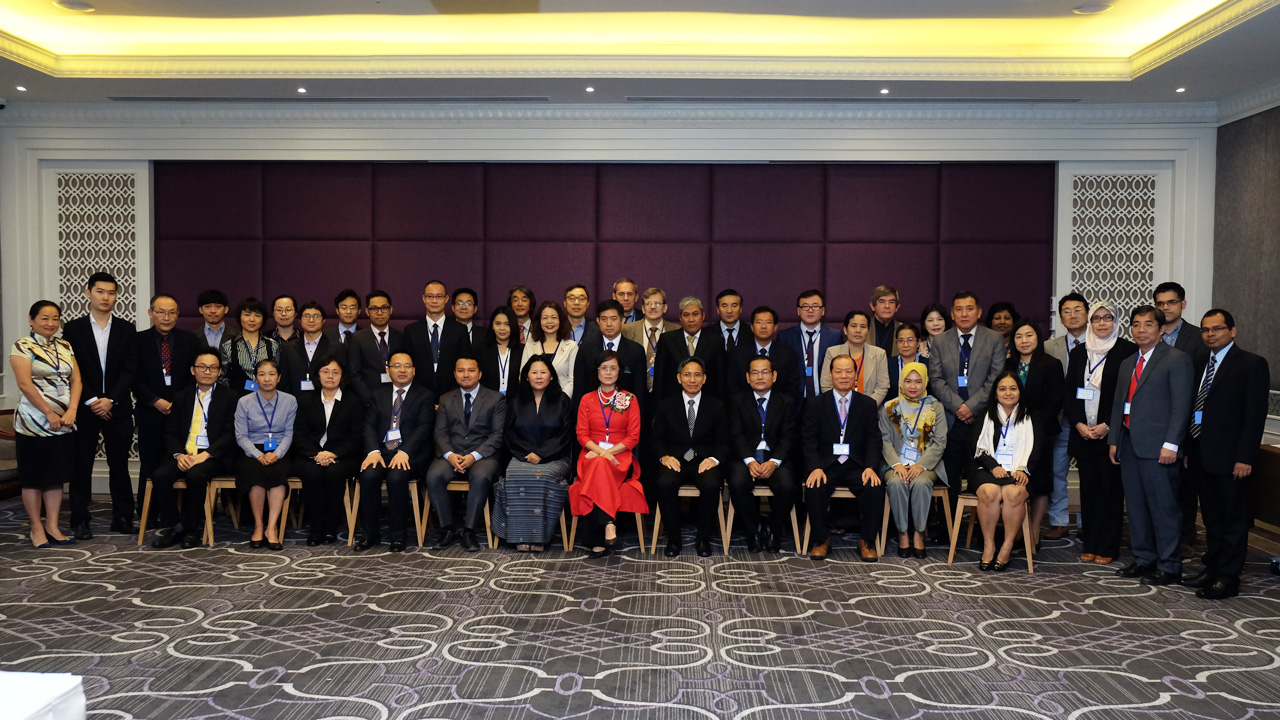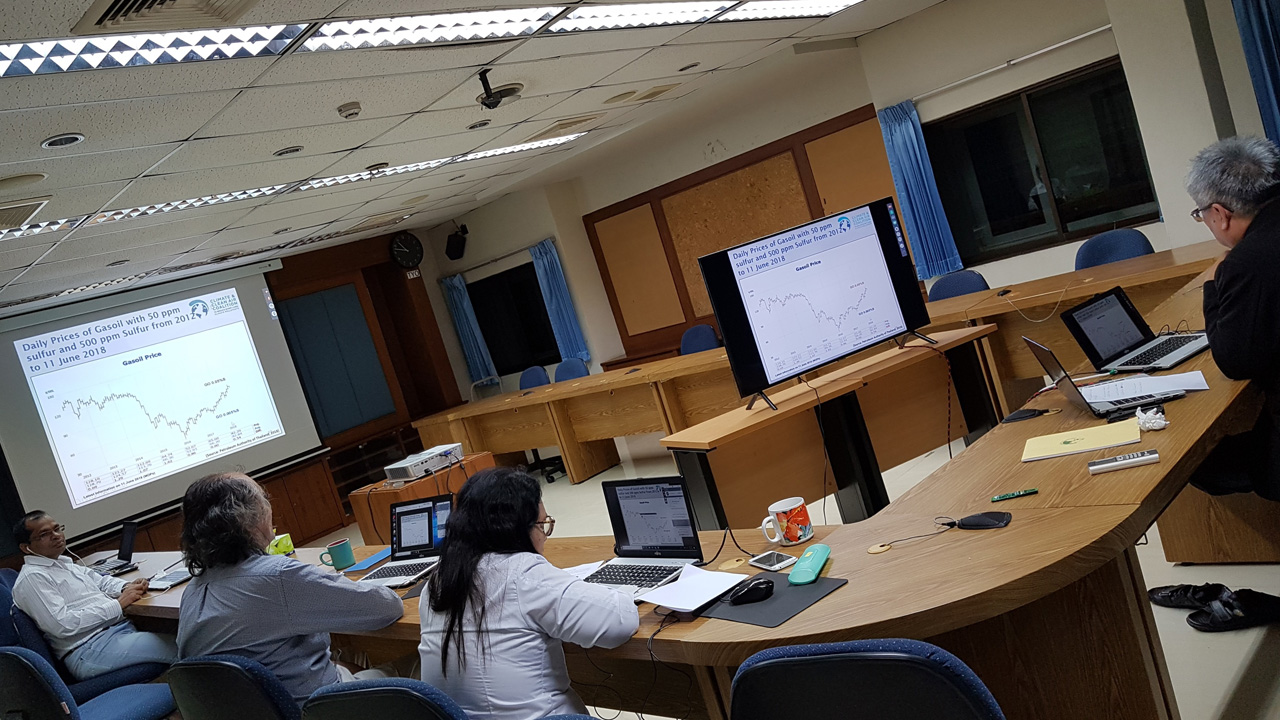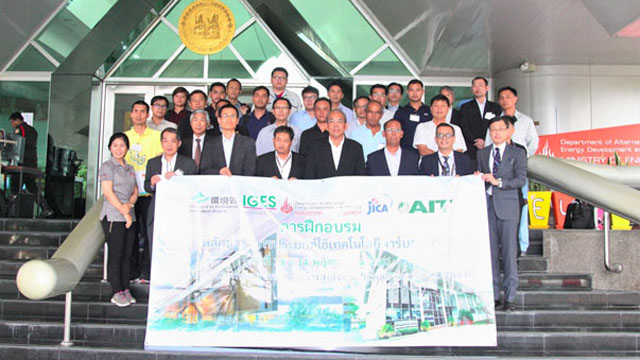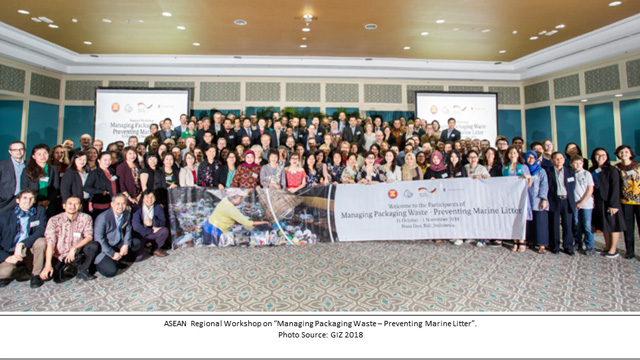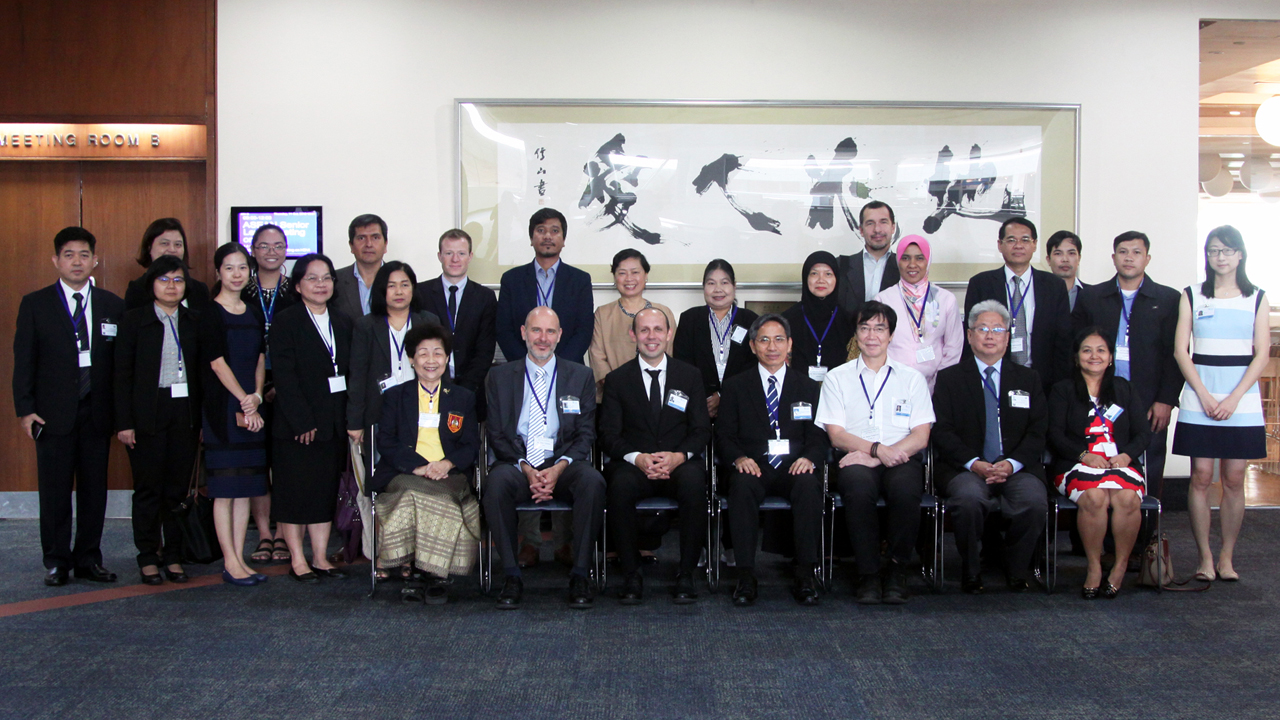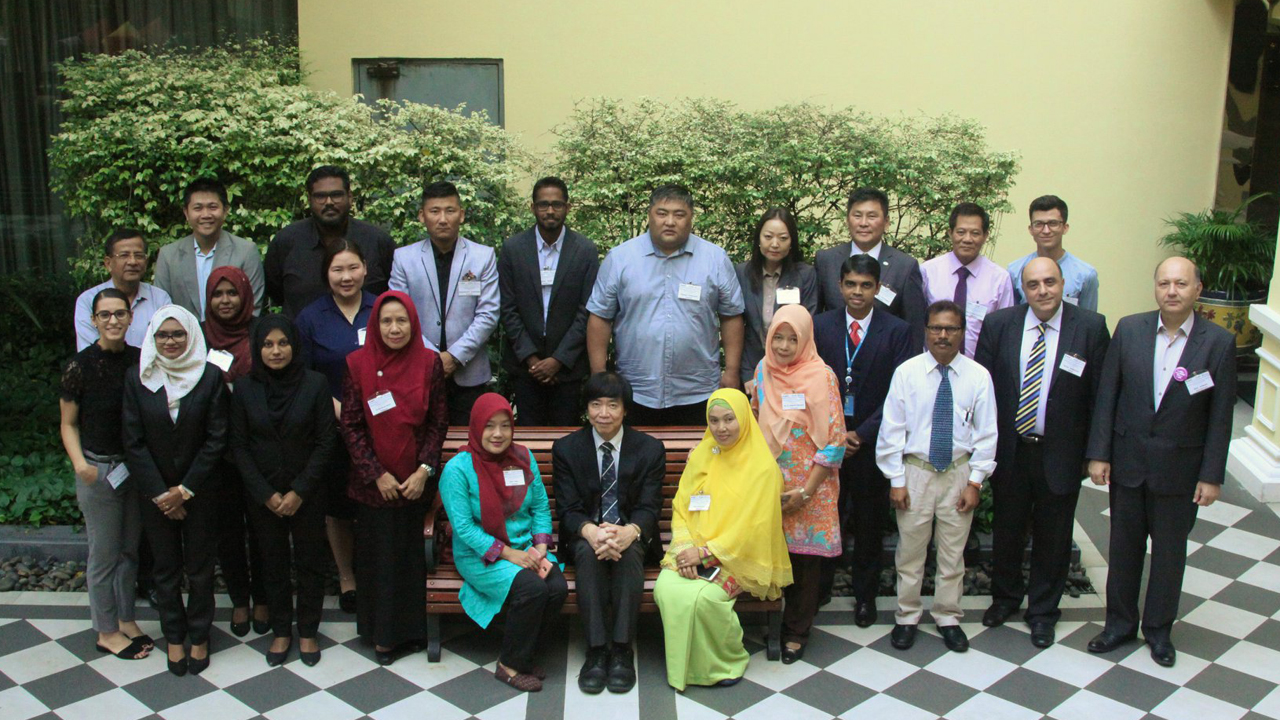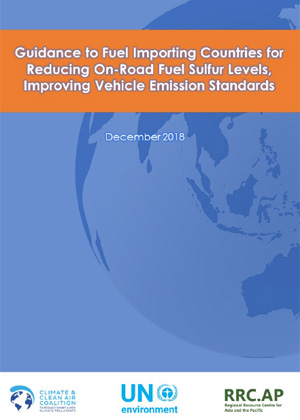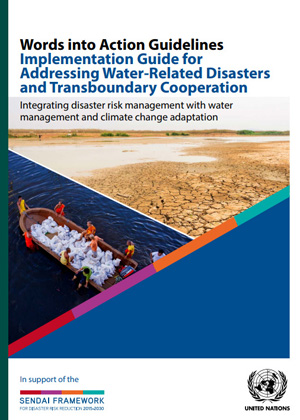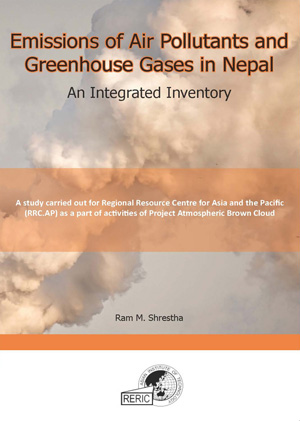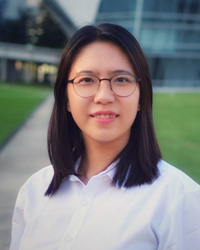Newsletter
Newsletter Archive:
RRC.AP NEWSLETTER
VOL.19 NO.4 SEPTEMBER-DECEMBER 2018
|
||
| > | Meetings and Events
|
|
|
RRC.AP Participates in COP24 in Katowice for the Second Consecutive Year with Several Interventions
3rd -14th December 2018
Poland RRC.AP attended the UNFCCC Conference of the Parties (COP24) on 3-14 December in Katowice, Poland. RRC.AP represented AIT and held an exhibition booth showcasing its activities. Secondly, RRC.AP co-organised a side event on "Exploring Innovative Approaches to Strengthen Capacity on Direct Access to Climate Finance" in collaboration with the Bangladesh Centre for Advanced Studies (BCAS) and Indigo Development and Change. RRC.AP also presented on capacity-building efforts for direct access to the Green Climate Fund in a side event sponsored by the Ministry of Environment of Japan. AIT RRC.AP Organized the Twentieth Session of the Intergovernmental Meeting (IG20) on the EANET
27th – 28th November 2018
Bangkok, Thailand The Regional Resource Centre for Asia and the Pacific (RRC.AP), in partnership with Secretariat for the Acid Deposition Monitoring Network in East Asia (EANET) located in United Nations Environment Programme - Regional Office for Asia and the Pacific (UNEP ROAP), organized the Twentieth Session of the Intergovernmental Meeting (IG20) on the EANET during 27-28 November 2018 in Bangkok, Thailand. Representatives of the participating countries, namely Cambodia, China, Indonesia, Japan, Lao PDR, Malaysia, Mongolia, Myanmar, Republic of Korea, Russia, Thailand, and Viet Nam participated in the meeting. The representatives of UNEP, Asia Center for Air Pollution Research, Network Center, World Health Organization, and Convention on Long-range Transboundary Air Pollution Environment Division United Nations Economic Commission for Europe (through skype) also joined the meeting. Mr. Thalearngsak Pethchsuwan, Deputy Director General of the Pollution Control Department, Ministry of Natural Resources and Environment, Thailand, delivered the welcome remarks while Dr. Dechen Tsering, Regional Director and Representative for UNEP ROAP delivered the opening remarks. The meeting, during its one and half day session, reviewed, discussed, and made suggestions on the progress of the EANET since IG19, outcomes of the Eighteenth Session of the Scientific Advisory Committee (SAC18) on the EANET, report on the Mid-Term Review of the Medium Term Plan of the EANET, Fourth Edition of the Report for Policy Makers, and Work Programme and Budget of the EANET in 2019. Updates on the activities of other international programmes related to acid deposition and air quality were also presented. On the last day, the report of the Session of the IG20 was considered and adopted. Webinars on Guidance to Fuel Importing Countries for Reducing On-Road Fuel Sulfur Levels, Improving Vehicle Emission Standards
20th- 22nd November 2018
Pathumthani, Thailand RRC.AP and the UN Environment, Air Quality and Mobility Unit, Nairobi, Kenya organized two webinars on Guidance to Fuel Importing Countries for Reducing On-Road Fuel Sulfur Levels, Improving Vehicle Emission Standards that had taken place on 20 and 22 November 2018. The webinars covered topics including costs to consumers, regulatory issues, matching vehicle emission standards to cleaner fuels, inspection and maintenance, and lubricity. The challenges facing fuel importing and fuel refining countries in desulfurizing fuels are diverse and complex. These webinars dealt specifically with the issues facing fuel importing markets as they seek to adopt low and ultralow-sulfur fuel standards. These countries make up the largest group of countries discussed in the Global Strategy to Introduce Low Sulfur Fuels and Cleaner Diesel Vehicles (Global Strategy), and therefore have extensive influence on fuel markets and fuel quality. The Global Strategy proposes a global target of 50 ppm sulfur in fuels by 2025 and 10 ppm sulfur in fuels by 2030, while at the same time supporting the introduction of complementary vehicle emissions standards. Developed by the Climate and Clean Air Coalition (CCAC) and endorsed by 36 countries. The Global Strategy is the first and only global plan to achieve a 99% reduction in particulate matter and black carbon emissions from the global on-road diesel vehicle fleet. Dr. Supat Wangwongwata, Senior Technical and Policy Advisor, RRC.AP presented on Guidance to Fuel Importing Countries for Reducing On-Road Fuel Sulfur Levels, Improving Vehicle Emission Standards. Training Programme on GCF Project Development and Appraisal
26th - 29th November 2018
Philippines RRC.AP delivered a Green Climate Fund (GCF) Project Development and Appraisal Training under the GCF Readiness Programme of the Philippines. The training was attended by over 60 participants, including the Climate Change Commission of the Philippines (National Designated Authority to the GCF), LandBank of the Philippines (Direct Access Entity), Development Bank of the Philippines, Bank of the Philippine Islands, government line agencies, nongovernmental organizations, and civil society organizations. The training focused on the following: 1) key policies and frameworks for appraising GCF Concept Notes and Funding Proposal; 2) access modalities for the various funding windows to the GCF; and 3) tools and techniques that aid the articulation of a climate rationale and a logic framework specific to the GCF. Training Programme on Applicable Low-Carbon Technologies
13th – 14th November 2018
Bangkok, Thailand Regional Resource Centre for Asia and the Pacific (RRC.AP) assisted the organization of a 2-day Training Programme on Applicable Low-Carbon Technologies in Thailand, which took place in Pathumthani on 13-14 November 2018, and was attended by 32 participants representing Energy Auditors, and Person Responsible for Energy (PRE). The event featured an experience sharing session on energy reporting systems and introduced participants to four Japanese technologies through technical sessions. Technologies covered include heat recovery heat pump, once-through boiler and steam management system, building energy management system (BEMS), and compressed air system and factory energy management system (FEMS) toward Internet of Things (IoT). The event was co-organized by the Ministry of the Environment, Japan and the Department of Alternative Energy Development and Efficiency of the Ministry of Energy, Thailand; the RRC.AP's assistance falls under the Technology Assessment 2018 activities. ASEAN Regional Workshop on "Managing Packaging Waste – Preventing Marine Litter"
31st October – 1st November 2018
Nusa Dua, Bali, Indonesia Mr. Guilberto Borongan of RRC.AP presented in Session 2: Packaging value chains on "Managing packaging waste in the ASEAN region – current state of affairs", and served as a panelist for a short oral presentation on relevant experiences and lessons learnt from a project, initiative and teaser related to the working group with the topic "Innovative incentives for consumers to return packaging waste" at the ASEAN Regional Workshop on "Managing Packaging Waste – Preventing Marine Litter" in Nusa Dua, Bali, Indonesia on 31 October - 1 November 2018. About 150 representatives from governments, cities, businesses, civil society and the academia participated in the event, which was held in subsequence to the "Our Ocean Conference 2018". The Regional Workshop discussed solutions for packaging design and responsible production, packaging in retail and consumption, packaging waste collection, packaging waste sorting and recycling, the integration of the informal economy as well as source-to-sea management for preventing marine pollution. Discussed amongst others, were the approaches for extended producer responsibility, financing schemes, public awareness raising, partnerships along the packaging value chain, business opportunities, standards for packaging design and recycled materials, social benefits and safeguards and the role of regional trade and cooperation in ASEAN. The ASEAN Regional Workshop was co-hosted by ASEAN, the Indonesian Ministry for Marine Affairs and Fisheries, the German Federal Ministry for Economic Cooperation and Development and the Norwegian Embassy in Jakarta. It was organised by the Deutsche Gesellschaft für Internationale Zusammenarbeit (GIZ). ASEAN Countries Meeting on Soot-Free Transport: Senior Level Consultation on EURO 4/IV Implementation and on Roadmap to EURO 6/VI in ASEAN Countries
11th-12th October 2018
Bangkok, Thailand The Climate and Clean Air Coalition (CCAC) Heavy-Duty Vehicles Initiative (HDVI) is supporting the Association of South East Asian Nations (ASEAN) to reduce the air quality and near-term climate impacts of diesel emissions in the on-road transport sector. The "ASEAN COUNTRIES MEETING ON SOOT-FREE TRANSPORT: Senior Level Consultation on EURO 4/IV Implementation and on Roadmap to EURO 6/VI in ASEAN Countries" was convened on 11-12 October 2018 in Bangkok, Thailand. Senior level representatives from the Ministry of Environment and Ministry of Transport in ASEAN countries, which include Cambodia, Indonesia, Lao PDR, Malaysia, Myanmar, Thailand, and Vietnam, participated in the meeting. Senior representatives of international organizations, co-leads of HDVI, and other local experts also attended the consultation. The International Council on Clean Transportation (ICCT), on behalf of the CCAC HDVI, has joined with the Asian Institute of Technology (AIT), represented by the Regional Resource Centre for Asia and the Pacific (RRC.AP) to organize this meeting. Both ICCT and RRCAP had also organized this meeting in cooperation and coordination with the Pollution Control Department (PCD), Ministry of Natural Resources and Environment, Thailand, and UN Environment, Regional Office for Asia and the Pacific. The meeting identified common obstacles and challenges to implement low-sulfur fuel and Euro 4/IV vehicle emission standards and advance to Euro 6/VI among ASEAN countries and exchange best practices. The meeting developed a draft joint technical workplan to address the support needed among ASEAN countries to overcome fuel quality and vehicle emission standard implementation challenges with an aim towards regional harmonization around soot-free Euro 6/VI emission levels. The Eighteen Session of the Scientific Advisory Committee Meeting on the EANET (SAC18)
9th – 11th October 2018
Hanoi, Viet Nam The Eighteenth Session of the Scientific Advisory Committee (SAC18) of the Acid Deposition Monitoring Network in East Asia (EANET) was organized in Hanoi, Viet Nam, during 9-11 October 2018. The meeting was hosted by the Government of Viet Nam. The SAC members from the participating countries and experts have attended the meeting. The session was opened by Dr. Erdenebat Eldev-Ochir, Deputy Director General of Asia Center for Air Pollution Research (ACAP), Japan. Dr. Huynh Thi Lan Huong, Deputy Director General of Institute of Meteorology, Hydrology and Climate Change (IMHEN), Ministry of Natural Resources and Environment (MoNRE), Viet Nam, welcomes the country delegates and participants. Mr. Tomi Haryadi, Coordinator of Secretariat for the EANET and Dr. Kazuhiko Sakamoto, Director General of ACAP delivered opening and introductory remarks, respectively. Mr. Naoya Tsukamoto, Director of Regional Resource Center for Asia and the Pacific (RRC.AP) also delivered his remarks. The sessions of the 3-day SAC18 meeting reviewed the progress of the EANET from 2017 activities including monitoring data on wet deposition, dry deposition, soil and vegetation, inland aquatic environment and catchment-scale assessment. The meeting considered the report of progress in cooperation with World Meteorological Organization, Global Atmosphere Watch (WMO/GAW); draft report of Mid-Term Review (MTR) on the Implementation of the Medium-Term Plan (MTP) for the EANET (2016-2020); draft of the Fourth Report for Policy Makers (RPM4); relevant scientific activities including acid deposition and updates on the progress of revision of the European Monitoring and Evaluation Programme (EMEP) Monitoring Strategy (2020-2029); progress of the Joint Research Activities on Model Inter-comparison Study in Asia (MICS-Asia); progress of the research activities on Appropriate Measurement Methodology for Elemental Carbon (EC) and Organic Carbon (OC); progress of the Air Pollution Solutions Report of Asia Pacific Clean Air Partnership (APCAP); and progress of preparation of the Clean Air Technology Workshop. On the last day of the meeting, the SAC members considered and adopted the Report of the Session and made recommendations for the IG. Training Programme on Building Cities and Local Governments' Resilience to Climate and Disaster Risk
17th – 21st September 2018
Bangkok, Thailand AIT RRC.AP organized a 5-day training workshop for Building Cities and Local Governments' Resilience to Climate and Disaster Risk. The workshop was held on September 17-21 in Bangkok. The programme was facilitated in partnership with United Nations Office for Disaster Risk Reduction (UNISDR), the United Nations Economic and Social Commission for Asia and the Pacific (ESCAP), the UN Habitat, the Food and Agricultural Organization (FAO), and the Gorakhpur Environmental Action Group. The workshop brought together 18 participants from three cities: Bengkulu city, Indonesia; Tuguegarao, Philippines; and Dharkan, Mongolia; as well as, representatives from national and local government officials from the Maldives and Mongolia working in disaster and risk reduction and climate change adaptation topics. The practical training workshop introduced participants to climate and disaster risk concepts; and utilized the UNISDR Disaster Resilience Scorecard and essentials tools. Participants drafted preliminary resilience action plans for their respective cities. |
||
| > | Publications
|
|
|
Guidance to Fuel Importing Countries for Reducing On-Road Fuel Sulfur Levels, Improving Vehicle Emissions Standards
December 2018
The "Guidance to Fuel Importing Countries for Reducing On-Road Fuel Sulfur Levels, Improving Vehicle Emissions Standards" was published in December 2018. This guidance document addresses the implementation of cleaner fuels and vehicle emission standards in fuel importing markets. As such, it covers the challenges specific to these markets as they strive to make low and ultralow-sulfur fuels and advanced vehicle emission standards a reality. The main challenges faced by importing markets are: Costs to consumers, Regulatory issues,Matching advanced vehicle emission standards to cleaner fuels (including vehicle imports and second-hand vehicles), Inspection and maintenance for existing fleets and Lubricity.
This document explores these topics, as well as case studies that illustrate how markets have coped with these challenges. The guidance document is now available via the CCAC website. AIT.RRCAP Contributes to UNECE/UNISDR Publication on Water Related Disasters and Transboundary Cooperation
November 2018
RRCAP is a contributing author to the publication "Words into Action- Guidelines Implementation Guide for Addressing Water-Related Disasters and Transboundary Cooperation" - that was just officially launched. RRCAP's climate change cluster contributed in two chapters: Developing strategies to reduce risk; and a Section on Capacity Development under Responsibilities and stakeholders' chapter. The publication can be freely accessed here. Contribution to the Publication of a Book on "Emissions of Air Pollutants and Greenhouse Gases in Nepal", Authored by Prof. Ram M. Shrestha
October 2018
Estimations of the emissions of air pollutants and greenhouse gases (GHG) of Asian country was done as a part of the activities of the Atmospheric Brown Cloud (ABC) Programme of AIT RRC.AP. ABC Programme has been supported by the Swedish International Development Cooperation Agency (Sida). The estimation of emissions of air pollutants and GHG in Nepal was done by Prof. Ram M. Shrestha who authored a book "Emissions of Air Pollutants and Greenhouse Gases in Nepal". The book is published by Regional Energy Resources Information Center (RERIC), AIT. Prof. Shrestha used a bottom-up approach for estimating emissions of air pollutants and GHGs using activity data of the year 2008/09 from all key emission sectors. The book contains a most extensive compilation of data on emission-related activities and represents a comprehensive emission inventory of air pollutants and GHGs in Nepal. The book is highly useful to policymakers as well as to atmospheric science researchers working on air pollution and climate change issues of Nepal and the South Asia region. |
||
Announcements
|
||
New Interns
Hnin Lai Win
Ms. Hnin Lai Win has completed her Master's degree in Environmental Engineering Management at Asian Institute of Technology, Thailand. She joined the Waste and Resource Management cluster of RRC.AP as an intern and will be working on "Country Assessment Report on Low Carbon Technologies for Mongolia and Maldives" during the period of 5 September to 31 October 2018. Ms. Hnin also holds a post graduate diploma in Remote Sensing and Geographical Information Systems (RS/GIS) from University of Yangon. |
||
Regional Resource Centre for Asia and the Pacific (RRC.AP)
info@rrcap.ait.asia
To Subscribe: http://www.rrcap.ait.asia |

